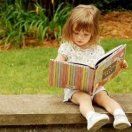"The Art of Stillness" by Pico Iyer


07 英文朗读听力练习 "The Art of Stillness"
4分钟 · 553·
553· 5
5
 553
553 5
5
Mickey_JJ
2022.5.03
3
My suggestion was accepted💕😁 好听,喜欢贝贝的声音,加油!🎧
贝贝书屋:嘿嘿嘿我觉得建议灰常棒👍
昨晚读完了the art of stillness 这本薄薄的小书和the power of now比起来虽然“道行”浅了一些 却也是作者追求内心平静的真情实感 于我来说 本书最大的吸引力是作者的工作性质——一位游遍世界的旅行作家——与nowhere完全对立的角色 活到中年竟然也在追求stillness!
everywhere 与nowhere 墙裂的反差并行在一起 这种juxtaposition的错位感震撼到我!
正如作者结尾说到:
You can go on vacation to Paris or Hawaii or New Orleans three months from now, and you’ll have a tremendous time, I’m sure. But if you want to come back feeling new—alive and full of fresh hope and in love with the world—I think the place to visit may be Nowhere.
everywhere 与nowhere 墙裂的反差并行在一起 这种juxtaposition的错位感震撼到我!
正如作者结尾说到:
You can go on vacation to Paris or Hawaii or New Orleans three months from now, and you’ll have a tremendous time, I’m sure. But if you want to come back feeling new—alive and full of fresh hope and in love with the world—I think the place to visit may be Nowhere.
文稿
The idea behind Nowhere—choosing to sit still long enough to turn inward—is at heart a simple one. If your car is broken, you don’t try to find ways to repaint its chassis; most of our problems—and therefore our solutions, our peace of mind—lie within. To hurry around trying to find happiness outside ourselves makes about as much sense as the comical figure in the Islamic parable who, having lost a key in his living room, goes out into the street to look for it because there’s more light there. As Epictetus and Marcus Aurelius reminded us more than two millennia ago, it’s not our experiences that “form us but the ways in which we respond to them; a hurricane sweeps through town, reducing everything to rubble, and one man sees it as a liberation, a chance to start anew, while another, perhaps even his brother, is traumatized for life. “There is nothing either good or bad,” as Shakespeare wrote in Hamlet, “but thinking makes it so.”
So much of our lives takes place in our heads—in memory or imagination, in speculation or interpretation—that sometimes I feel that I can best change my life by changing the way I look at it. As America’s wisest psychologist, William James, reminded us, “The greatest weapon against stress is our ability to choose one thought over another.” It’s the perspective we choose—not the places we visit—that ultimately tells us where we stand. Every time I take a trip, the experience acquires meaning and grows deeper only after I get back home and, sitting still, begin to convert the sights I’ve seen into lasting insights.
The idea behind Nowhere—choosing to sit still long enough to turn inward—is at heart a simple one. If your car is broken, you don’t try to find ways to repaint its chassis; most of our problems—and therefore our solutions, our peace of mind—lie within. To hurry around trying to find happiness outside ourselves makes about as much sense as the comical figure in the Islamic parable who, having lost a key in his living room, goes out into the street to look for it because there’s more light there. As Epictetus and Marcus Aurelius reminded us more than two millennia ago, it’s not our experiences that “form us but the ways in which we respond to them; a hurricane sweeps through town, reducing everything to rubble, and one man sees it as a liberation, a chance to start anew, while another, perhaps even his brother, is traumatized for life. “There is nothing either good or bad,” as Shakespeare wrote in Hamlet, “but thinking makes it so.”
So much of our lives takes place in our heads—in memory or imagination, in speculation or interpretation—that sometimes I feel that I can best change my life by changing the way I look at it. As America’s wisest psychologist, William James, reminded us, “The greatest weapon against stress is our ability to choose one thought over another.” It’s the perspective we choose—not the places we visit—that ultimately tells us where we stand. Every time I take a trip, the experience acquires meaning and grows deeper only after I get back home and, sitting still, begin to convert the sights I’ve seen into lasting insights.
接上
This isn’t to suggest that travel is useless; I’ve often known stillness most fruitfully in a sunlit corner of Ethiopia or Havana. It’s just a reminder that it’s not the physical movement that carries us up so much as the spirit we bring to it. As Henry David Thoreau, one of the great explorers of his time, reminded himself in his journal, “It matters not where or how far you travel—the farther commonly the worse—but how much alive you are.”
This isn’t to suggest that travel is useless; I’ve often known stillness most fruitfully in a sunlit corner of Ethiopia or Havana. It’s just a reminder that it’s not the physical movement that carries us up so much as the spirit we bring to it. As Henry David Thoreau, one of the great explorers of his time, reminded himself in his journal, “It matters not where or how far you travel—the farther commonly the worse—but how much alive you are.”



